Photo: Aaron Rose by Mike Miller.
Aaron Rose is a film director, artist, exhibition curator and writer who is known as a key part of the Beautiful Losers art movement which has featured and helped notarize the work of artists such as Barry McGee, Margaret Kilgallen, Steven "Espo" Powers, Chris Johanson, Harmony Korine and Shepard Fairey.
Lina Lapinskienė: How are you Aaron? You are in LA now, I can feel the warmth just talking to you! [laughs]
Aaron Rose: I wish I had video right now I could show you how beautiful it is!
Lina: You are a man of many activities, Aaron - a curator, a filmmaker, an artist, a writer. … What are you presently working on?
Aaron: I am just back from a meeting about the casting for a movie, so I am in the process of making a film that hopefully we will be shooting at the end of the year. So I did that this morning and after getting off the phone with you I have a book foreword that is due today about this nun called Sister Corita [Corita Kent] who was an American Roman Catholic religious sister, artist, and educator in the sixties, for a new catalogue of her work, so I have to write for an hour or two hours, and then another bit of writing on the movie, and then I am going to work on a painting that I have to make today, so quite a busy day! [laughs]
Lina: Yes! [laughs] How do you go about creating art, I’m talking about fine art, your paintings? What angle are you taking, what is your approach?
Aaron: Everything plays into everything else, it is really funny, you know. I do not work very much in paintings, I have an exhibition like once every five years, or something like that, but a lot of the inspirations for the painting maybe come from things that I’m writing about or ideas for a movie or even from a curiatorial standpoint from an exhibition that I am putting together. I might get an idea leading to a painting and then sometimes a painting will inspire a movie, sometimes writing will inspire a movie. It is all interrelated in a funny way, and I get really bored really quickly - so I am good to work on something for like two hours, but then I need to switch, you know what I mean. It is really hard for me to stay focused eight hours on one thing [laughs]. So it’s all the same thoughts, it is all the same ideas, but they are manifesting in different mediums, if that makes sense?
Lina: It does! So how do you choose a project, what excites you, what attracts you?
Aaron: Hmmm, this is always the hardest question right? [Pause] I’m gonna have a candy! [Laughs]
Lina: Go ahead! [Laughs]
Aaron: Well, I tend to always look for things that have some sort of social benefit. I don’t really like doing things that are just for me and about me, you know? I am always most inspired to work on a project, may I be the writer or the director, or the artist or the curator, that have some kind of bigger meaning or bigger message beyond just ‘look at my cool art’ [smile], you know? I really like to get my head around and sink my teeth into ideas that I feel are also educational and somehow socially relevant. You know? It has always been that way, and it has become more that way, even since Trump got elected. I feel that there is an even greater pressure as an artist to be vocal and just say something.
Lina: So in that sense you do feel strongly that art has a meaningful role to play in a society?
Aaron: Yes. As much as possible! Some things matter more than others obviously, but the things I look for, the things that inspire me the most, what makes me produce my best work is when I think it is not done for me, you know? I am doing the work, but the work is for a greater social cause or to put a message out.
"I am not interested in who the most famous celebrity, the biggest star,
I have always been more interested in the people who are overlooked
or that history has passed over,
the people who have really had to struggle
to be noticed in this world."
Lina: So you mentioned Donald Trump. What causes do you care deeply about?
Aaron: Sorry I am chewing my candy! [laughs] A recurring theme in my work all the way since I was a teenager has been the plight of the underdog, you know? Championing the outcast of society. Probably because I was one and still am kind of one. To provide a different narrative of the people who are thought of as losers. Or as not the popular ones. Not your standard success stories. I feel like a responsibility to tell these kinds of stories with my work you know? So if I think, more than anything it is that. And that plays into the political as well, you know what I mean? If there is one thing in my work all throughout my life, it is being a champion to the underdog, it is that concept. I am not interested in who the most famous celebrity, the biggest star, I have always been more interested in the people who are overlooked or that history has passed over, the people who have really had to struggle to be noticed in this world. So many! In my opinion the most talented people usually are not seen. You kind of have to be very mediocre to be famous. I think.
Lina: Yes, actually I remember this film of yours ‘Beautiful Losers’ and it starts with you saying that when you were a kid you always thought that art was for rich people: Do you think that has changed now?
Aaron: Well yes and no, art is still for rich people, it is the nature of the art economy. One of the interesting things that’s happened in the last decade is that there are multiple parallel art economies now. Which I think is really really interesting. There is the blue chip art world which deals with all the big art galleries and international art fairs, Basel, Miami, all these places where all those people come together in fancy clothes to attend parties [smile], but then you have these parallel economies and no one has done studies on them - which possibly I think bring as much money in a funny way as the blue chip art world - which are dealing in urban art, in street art, in low-brow art, with massive massive amounts of collectors who are only buying that work, but they are just not involved in the academic dialogue that the primary art world is involved in. And early-on in my career I was really trying to merge those two worlds and to get artists who come from an urban background or don’t have a master’s degree to be accepted by the academic circles, and a few have, a very small few, but in this parallel art economy success is manifested in different ways, in ways, I think, that are just as good. All you really want as an artist is to be able to make your work and to make a living, you know? And whichever way that happens, it’s ok, you don’t have to be in a dialogue - in a way that’s a pain in the a..! As long as you are able to do your work and make a nice living and follow your dream that’s the goal you know? Does this answer your question?
"All you really want as an artist is to be able to make your work and to make a living."
Lina: I think it does. You mentioned the academic world, I know that you got into university to study art and then you said: ‘I do not like it, I am leaving!’. Why didn’t you like university?
Aaron: Well because the school that I went to it is called ArtCenter, it is here in LA, and for LA it is a very prestigious school, it is one of those schools that every kid is trying to get into, but once I got there it felt more to me like a business school than an art school. You heard things like: ‘make this type of work, this is what the market wants’, it was like if I was going to some school teaching me how to open a brew pub, it didn’t feel right for me. It was not a creative place for me and it was very expensive, twenty thousand dollars a semester, that is sixty thousand dollars a year. So I thought why are my parents spending this money for something that I don’t like and that is making me hate arts? I can just move to New York you know, and just be an artist, just jump, be an artist, and that is what I did! That schooling did not help me, and it is funny because I still keep in touch with a few of the people who were in my class, and they all went in trying to be fine artists and now they are all working in the movies, doing animations or visual effects. They never became artists.
Lina: Why do you think that happened?
Aaron: I am not going to say that this is true of every school. But that school I was going to was putting so much emphasis on career and so little on finding your own voice and being a truly unique creative person. So after a certain amount of time if you are taught this, you start putting aside your individual ideas, your aesthetics, your concepts about what you want to do, and you just start going down the line of how can I get a good job. And it is fine, I certainly don’t judge people for that, it’s just that wasn’t for me.
Lina: Yes, I see. So you went to New York and when you were a young man, a teenager, you were anti-school, anti-parents anti government, anti money…In that subculture that you immerse yourself in in New-York, it was rough and raw, maybe there was a little bit of anger, but somehow still it does not feel aggressive. It feels to me that it was more like a positive group of people. Or is it me romanticizing these times? Is it true, was it overall positive?
Aaron: Yes. That is a really nice question and not that many people ask that question. It is funny because there was that public perception, you know, of that punk scene, the skateboarding scene, especially if you look at the music, slam dancing, skateboarding too, that these scenes were pretty violent, you get hurt and all that. In reality most of the people that I’ve met, with some exceptions - were there because they were actually quite sensitive people underneath, like almost too sensitive, and so these worlds provided them with not just a means to express their frustrations, but also acted almost like a force field around them, you see? As if all of that rough outside image were like a shell, just shielding these tender persons inside; and I have seen that with so many people from these worlds, highly sensitive, highly emotional, highly creative people who build a shell of tough around because the outside world sometimes is too rough for them, you know? And so there is a dichotomy there between the public perception of the ‘I’m punk. I’m tough.’ when really on the inside is like a crying child. I think their artworks were more of a manifestation of the crying children than of the tough punk guys.
Lina: And so would you call ‘Beautiful Losers’ a movement?
Aaron: Yes, very small [laughs]. I never wanted to be the person who says that, a lot of people said it, and I just kind of agreed. Because I think that a movement kind of defines itself. The way I look at it, and this comes from looking at other movements in arts and music, is that this scene was born out of a very small group of people who thought the same way, who spent a lot of time together, and who influenced each other. A lot. Even to the point of, for instance, an artist using a certain kind of brush and giving it to another artist and saying ‘you should try my brush’, you know? And then that brush line starts to look similar in two artists’ works, even though they have completely different aesthetics, the brush lines start looking the same and you start seeing these parallels and cross-pollination of techniques. Even though the artists retained their unique looks, the techniques started to cross-pollinate and then you started to see a picture of a world that started to feel like a cohesive thing. And that is the same thing with grunge music from Seattle: you had all these different groups, but they all knew each other. They were playing the same small venues and so their guitars started to sound similar and the song structures were similar, and this was just because they were hanging out, you know what I mean? So you say, ok, that was a grunge ‘movement’, but it was really just because these people were all together at this very formative time in their lives and were teaching each other things. And there was also all this funny quibbling that was going on back then, because you are very insecure when you are young about your work - artists were always saying ‘oh he is ripping me off’ or ‘she is ripping me off’, all this fighting within the group, ‘oh that is what I drew and now you are drawing it’, but I think that is all very healthy: When you are young you are like ‘Don’t take my thing!’ you know? [laughs]
Lina: Yes, you are very protective!
Aaron: Yes, but at the same time there is this sharing you see, it is very interesting. So I think there is a qualifier for Beautiful Losers that it’s is a movement in art, because it follows the same patterns as other movements. The same with punk, like in London with Vivienne Westwood and Malcolm Mclaren and the Sex Boutique - these group of kids hanging out of this clubbing store, who started making bands and then one thing led to another and you have the punk!
Lina: So we touched this part about being touchy and protective about your art when you are younger. Do you feel more confident now or are you still fighting some personal demons?
Aaron: Well, I am going to be 48 this year, they are better, but they are still there.
Lina: What are they?
Aaron: My gosh, so hard. I think no matter how you grow up, in my teens and my twenties is really when my identity was set, and my identity was not being a successful person. And even though after so many years - next month it will be 25 years since I opened the Alleged Gallery - that teenage voice is still inside of me. I have learned to tell it to shut up, you know what I mean, like ‘Look at everything that you have done, how do you still feel this way?’ But truth is that little boy is always there, saying things like: “no way, you will never do this!”, you know? Even this morning it happened to me. I was talking to this casting person and we were talking about big movie stars, and even though I was acting on the outside: “sure this would be great, let’s talk to her!”, on the inside, the little boy in me was going like: “You will never get that, what are you thinking, you are such an impostor. You will never get this person! Why are you lying to them?” [Huge laughs]
Lina: I can totally imagine what you are going through [laughs]
Aaron: And I have worked with the greatest people in the world, so why should I feel funny about this? That little boy is always still there you know: “Stop this meeting right now. Tell them you’re a fake!” [Laughs] So then I have a cup of coffee and I’m OK, you know! [Laughs]
Lina: Yes, because you can rationalize things, but then you are still always fighting within.
I have worked with the greatest people in the world,
so why should I feel funny about this?
That little boy is always still there, you know:
“Stop this meeting right now. Tell them you’re a fake!”
Aaron: That’s all coming from my time when I was very very young and I was the one weirdo at my school, and I was getting picked on all the time. The football players were beating me up after school. My parents were angry with me. I was wearing dresses to high school, you know. “Why are you wearing a dress? No son of mine is not wearing a dress to go to school!” I was wearing a dress just because like “why not!?”
Lina: But so did you have friends who were like “Go Aaron! We are with you.”?
Aaron: None in school though. Because I was going to a pretty small school. I had to go and take the bus and go to Hollywood because I grew up outside of LA, and it would take the bus like an hour and a half, to Hollywood, when I was really young, like 14. And I would go there and I had other friends there you know. There were kids like me. But in my home and in my school, every day was hell.
Lina: That’s tough. But to me, you see, that is courage. You were being yourself, you were doing what you wanted.
Aaron: I was trying yeah... I mean I’m really lucky, you know. I had lot of kids that I knew growing up who got to kill themselves because of this stuff.
Lina: Because of bullying.
Aaron: Yes, bullying. And they did not have the courage or the resources to go find people like them and then the pressure got to be too much, you know.
Lina: Alas this bullying problem and lack of acceptance is everywhere, in any given country. You really are a people person, Aaron, you gather people under one roof, you love people and you are kind to them, where do you think that comes from?
Aaron: Gosh, I don’t know. I learned really early that it is good to surround yourself with people who are smarter than you. And maybe that’s because I didn’t go to school.
Lina: You mean University?
Aaron: Yes, university. I don’t remember who was the first person I met who had this influence on me, but I always felt it’s good to always have people around me who are better, more talented than me and smarter than me. And so I think I seek that out all the time. And also I now try to be that person to younger people as well, and it has to do also with educating myself and not being in my own brain all the time. Collaborations and working with groups of people are great ways to learn. Even though sometimes there are fights or whatever, because people have opinions, but it’s a good way to become a more interesting person. Maybe part of it is that this way I don’t have to take all the blame if something is bad! [laughs]
Lina: Well that is clever [laughs]. What constitutes a good piece of art to you?
Aaron: You are tough! [laughs]
Lina: Thank you, I’ll take that as a compliment! [laughs]
Aaron: This is like the oldest question in the world, right? OK, for me, a good piece of art is something that is one hundred percent that piece of art. It is instantly recognizable, it doesn’t look like anything else, it has its own completely unique personality, you know exactly what it is the second that you see it, so from an aesthetic standpoint when I see something that is really good it’s when I look at something and it is completely its own thing. There is so much art you know, like ten artists who look exactly the same. A still, a piece of music or a piece of writing has to have a completely unique signature, so you can immediately be like ‘Wow!’ you know what I mean? In film someone like a Wes Anderson. You look at it you know Wes Anderson. Or like Warhol had it. This thing where ‘Boom!’, it is completely what it is.
Lina: I think it is authenticity, isn’t it?
Aaron: Yes, authentic and then completely unique. And then the second criteria is more like an emotional criteria. Because art is not only visual, I think it needs to make you feel. Which I think is harder than the aesthetic part. Not that making something completely unique aesthetically isn’t difficult, but I think to make it then have also an emotional impact and really move an audience, really make someone feel, is almost more difficult. And when you can achieve the combination of those two things then I think that you’ve really struck genius. And I still feel that I have not done that yet. I try, it’s constant practice. I have made good things but I don’t know if I’ve managed to do what I believe is truly great work. Maybe one day [smile].
Lina: Do you think that is something that is driving you?
Aaron: I hope, yeah of course! Of course. But you never know. You start down this path in the forest, and you don’t know what’s on the other side. You just have to trust that your heart is pure and that all that you are trying to do is worth the effort and the pain and everything you have to do to make this thing happen, and not get to the end of it and just say: “oh it was a nice walk” [laughs]
Lina: But then you surely must find pleasure in that quest, it’s not all pain, I assume?
Aaron: No…Well it’s a lot [of pain], but every day is different.
Lina: What makes you happy?
Aaron: Gosh, I don’t know. What makes you happy? [Laughs]
Lina: [Laughs] Well, a sense of meaning, I guess.
Aaron: Yeah, meaning. Waking up every morning and feeling that I have something to do that is valuable, that makes me happy, on a professional level. On a personal level I have a three year old daughter, that makes me happy and that is the greatest masterpiece I’ll ever make, I’ll never make anything as good as that. That sounds so cliche but it’s true, it has all the things I said, it is completely unique, it doesn’t look like anything else, it’s instantly recognizable as that person AND it’s emotional.
Lina: That’s it, that’s your masterpiece! [smile]
Aaron: Yes! [laughs]
Lina: Has having children changed your take on life?
Aaron: Yes and no. It’s relieved a certain amount of pressure from my career, in terms of always trying to get to this place of magnificent genius in my work. Even though I still want it, you know, obviously, that’s still a big motivator, but it’s relieved some kind of pressure, like ‘do your work and don’t worry about it because you have already done that great thing’…
Lina: Yes. The main thing is done, so you feel safe [smile].
Aaron: Yes, at least I have achieved that in some area. But having a child is very different from a career and there’s a different motivation in a career. And so it is still there, I honestly don’t know if it’s up to me to judge what’s great and what’s not, coming from me. I feel like in the end history will be the judge of whether it’s good or not you know, and it should really not be my problem. But it does not mean that I don’t think about it.
Lina: Do you try not think about it?
Aaron: I try but it is impossible. I am not a strong enough person to say: “I don’t care what anybody says I am the greatest”, [laughs]. I am not that. I care, you know. I try not to read reviews and things like that, but you care because as an artist you want to communicate, it’s part of your job, so if you are not communicating, something’s wrong.
Lina: But you know that the greatest artists of all times were not loved by everyone.
Aaron: That is true. But ‘the greatest artists’ is also up for debate [laughs]. The greatest artists - that have been accepted by the society…[smile]
Lina: Look, even Jesus and the Dalai Lama are not loved by everyone!
Aaron: No, in fact it was even the opposite for Jesus. So I don’t know, it’s a daily practice doing that kind of shit. You try to get up and do the best thing that you can, try to be smart and be original, and try to be inspiring, some days it happens some days it doesn’t. It’s a creative process.
"I have always thought that handicapped people are really beautiful,
the way their bodies move, with a funny leg or a missing limb,
their body movements are really cool,
so I would really like to do something with that kind of approach to dance.
And this goes back to celebrating the outsiders."
Lina: Is there one project that you really want to do in life that you haven't done yet? You’ve done films, you’ve done books…
Aaron: Yeah, I might be a bit old now, but I have always wanted to be a choreographer. I am not a professional dancer so whatever my approach of choreography it would have to be executed by professionals. But I have always loved dance - skateboarding and dance are so similar anyways -
I have always loved that and thought it would be interesting to do that - to choreograph a good dance performance. Maybe one day. Well, I don’t know why anybody would hire me! [Laughs]
Lina: Why not?! [laughs]
Aaron: I have always thought that handicapped people are really beautiful, the way their bodies move, with a funny leg or a missing limb, their body movements are really cool, so I would really like to do something with that kind of approach to dance. And this goes back to celebrating the outsiders. You know, making the people we turn our heads away from in the streets beautiful.
Lina: It is beautiful, I get you, making this unseen person seen or that weak person strong, it is beautiful.
Aaron: I’d say that’s the theme, yes.
Lina: Do you ever think of a meaning of life?
Aaron: It depends on the day, yes. I mean, for the most part and it’s going to sound naive but I really think that it does not mean anything. That we, as human beings, need to attach a meaning to it. Just so we get up and do something every day. It’s built into the organism. To search for food or to search for love or whatever it is, but I also feel like in the end of it, and I have no proof of it, we’re here and we serve our purpose and we die, there is not a bigger story. But we build into our bodies, into our existence or soul or whatever that is, this idea that life should mean something, which basically keeps us doing our job. You know what I mean? [laughs]…Which is spreading pollution over the planet! [laughs]
Lina: It sounds sad somehow.
Aaron: It is a little bit sad but prove me wrong. It would be nice at the end of my life to be proved wrong, but I have not seen any evidence to the contrary. That is not to say that I am not a spiritual person, I am a spiritual person, I believe that we are all energetically connected, but I don’t know if that means that all the individual lives mean anything you know.
Lina: Well maybe you are connected to the life after you.
Aaron: Yeah, but maybe we are all connected in the way that a car engine is connected. You know? All these parts are making the car go, but the individual part does not have like a meaning you know? It’s just a gear. But again there’s no proof, I haven’t died yet so…
Lina: Do you have something that helps you stay centered? What do you do, where do you go?
Aaron: Well my work is doing that for me. My work is being creative. Depending on what I am doing - film is different because it is a set and there are a lot of people you know - but like writing or painting, is solo work you know, you are by yourself and in those moments I can turn my brain off. And there is a quiet space there and I can then get out from that space and say: “ok I am chilled!”. But I don’t do yoga or anything like that, the work does it. And driving too, I love to drive, so I drive a lot. Just for no reason!
Lina: Do you? Just get in the car and drive...?[laughs]
Aaron: Yes [laughs] it drives my friends crazy.
Lina: Is nice you have a nice scenery in LA, it must be perfect.
Aaron: Most people think LA is ugly. But I even like that. I can go to the ugliest street I can find, you know what I mean? See what’s there, you know?
Lina: About America, you mentioned Trump. How does it feel to live in America and be American today?
Aaron: I think that this country is going a bit through an identity crisis. As much as I dislike what the President is trying to do right now, I also feel kind of a bit of gratitude, because it woke a lot of people up, you know, who were kind of just like chilling for a while, maybe taking for granted certain ideas you know - and I mean this country has always been flawed it’s a very flawed place - but I think that having a President like this a… has woken a whole generation of people up, you know, which I think in the long run, as long as we don’t get killed in a nuclear war, will be really really good for this place, and for the world as well. I think it is not just America, I think everybody is kind of looking at what is going on here and thinking this is wrong. And I have friends from all over the world and everybody can see this is wrong, and so hopefully it helps to have like a consciousness change, I think with the young people it could become really great in the next 10 to 15 years, for the whole world you know, just having had to look at the face of evil. Whereas like, I loved Obama as a President - he had his problems too - but if you look even just at music during these times it was booty dancing and let’s have fun you know, that was kind of the vibes, and I think that people are in a different place now. You know what I mean? You can’t just be that. There is a responsibility you have as a person. It takes time for people to react, they need time.
Lina: You can see society starting to reflect on things.
Aaron: Well yes, beginning to, beginning to. Because I think it takes time. He [Trump] has only been there for one year, but you see people speaking out. Even like right during the Olympics, I can not remember his name, there is one American skater who is the first openly gay olympian [Adam Rippon], there are only two this year, this is the first time an athlete has gone to the Olympics openly gay - obviously there has been some forever but they were always in the closet - and he was in a big twitter fight with the Vice-President because the Vice President believes in Gay conversion therapy, he has donated money to it for kids to be not gays, so to have an American athlete in the Olympics having a fight with the Vice President about gay rights is obviously a sign of this. And homosexuals were persecuted under Obama as well, but this conversation probably wouldn’t have been happening.
Lina: Obama did clearly support the rights of the homosexuals.
Aaron: Yes, he did, but because of this new administration this important conversation can come up again.
Lina: These prejudices from another age do not make any sense.
Aaron: Yes, the whole thing is ridiculous. It takes time to get heard. Look just in music to make a record takes at least a year. To write it to record it to put it out…So I think a lot of work that is reacting to what the government is doing is still like being made because it takes so much time for that to actually come, so I think that in the next couple years we’ll start to see more and more of that.
"I feel like the government is very aggressive and very hateful and very anti-people,
and I hope that the reaction to that will be to bring people together, you know what I mean?
To be more human and more heartfelt, to fight against that hate."
Lina: Do you have an idea what it’s gonna feel like, will it be rough, more aggressive?
Aaron: I hope not. I feel like the government is very aggressive and very hateful and very anti-people, and I hope that the reaction to that will be to bring people together, you know what I mean? To be more human and more heartfelt, to fight against that hate. Not just to put hate on top of hate. You know? That’s what punk did, punk put hate on top of hate, but I’m not really sure it achieve much, other than for the kids who were involved, it never really broke out until twenty years later. And I think that part of this was because there was no solution there. It was just a mirror. But I don’t know, when I see some artists that have been doing things it’s been kind of hateful you know. I hope it doesn’t go that direction. Hate versus hate then we’re all like just matter! I hate to say: “conquer with love” because that’s so cheesy, but “conquer with understanding” maybe.
Lina: Tolerance.
Aaron: Tolerance, yes. We’ll see.
Lina: What character traits do you appreciate most in other people?
Aaron: [laughs] Depends on the person. The first thing would be honesty, but then I have so many friends who are totally dishonest who are total players and I think they are hilarious and I love them too, you now? [Laughs] Because I know they are being dishonest I am not angry at them. Because I’m like: “you’re a fucking liar”, you know? [Laughs]. I think ‘Joie de vivre’ is what I look for more than anything. Someone who is making the most of their time on this planet, and no matter what they are doing. If they have that spark then I am into it.
Lina: That’s a beautiful note.
Aaron: I don’t hang out with people who are hurting people. Or with people who self-pity I don’t really have too much time for that.
Lina: It seems to me that you are surrounding yourself with kind, positive people!
Aaron: I try, yes. If people bring ‘joie de vivre’ into their lives then I am into them! [laughs]
Lina: Thank you Aaron, it was really beautiful.
Aaron: Thank you, Lina, I liked your questions, very thoughtful, not the usual questions I get.
Lina: That’s nice. [smile]
Aaron: Yes, be unique and stir emotions, that’s a masterpiece! [laughs]. Nice to meet you!
Lina: Samewise!
Aaron: Stay warm!
You may visit Aaron Rose's world HERE and via his INSTAGRAM.

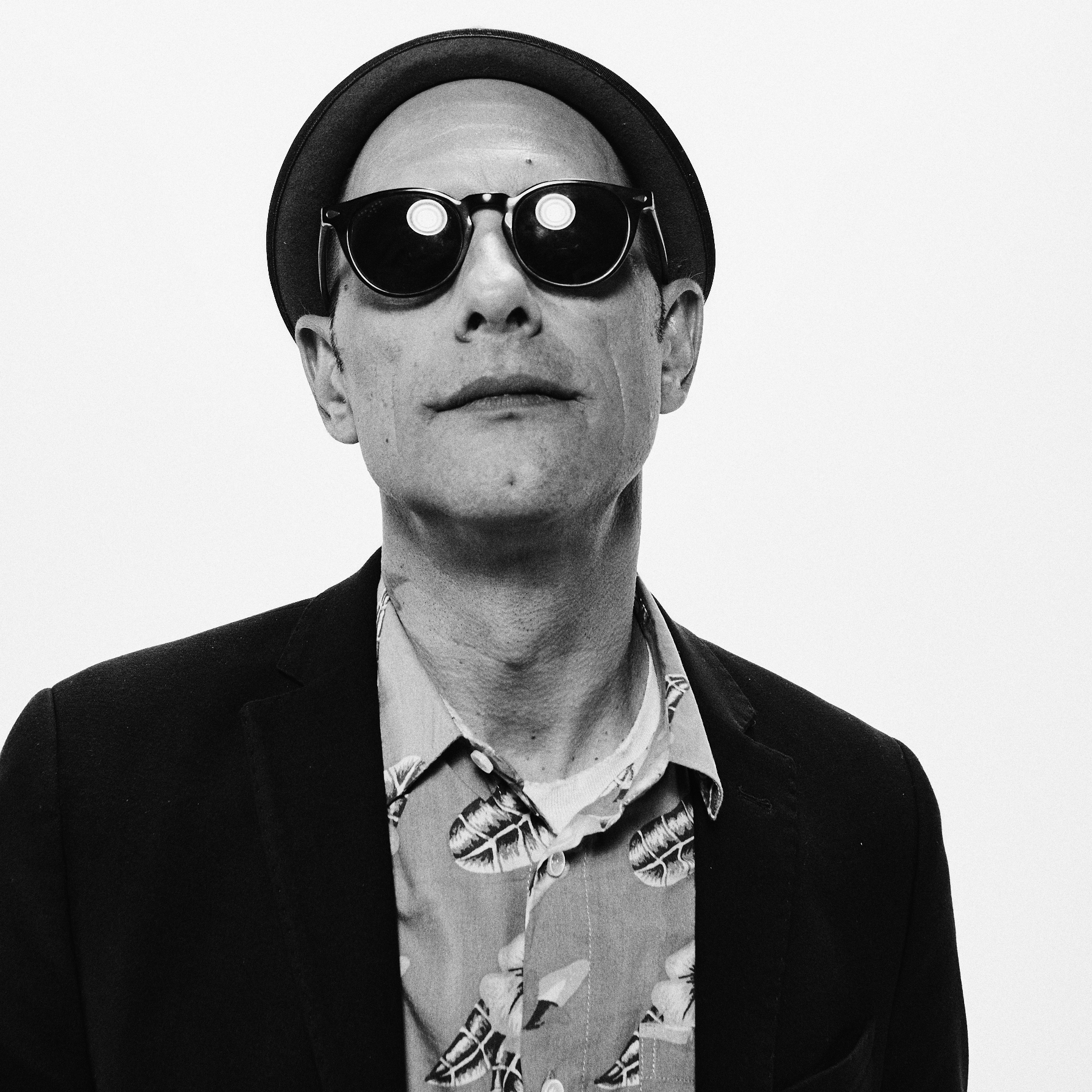



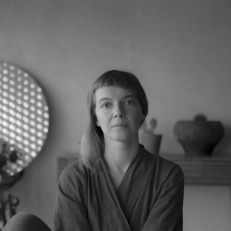
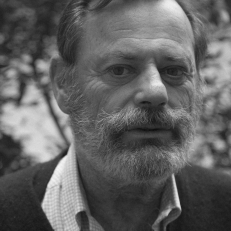
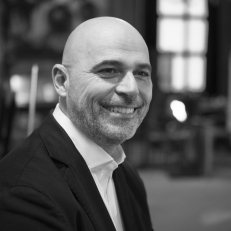
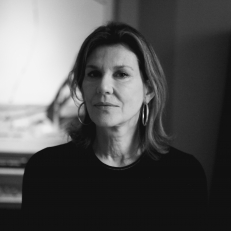
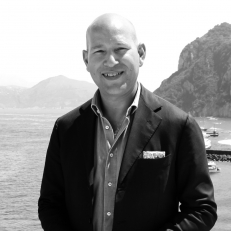
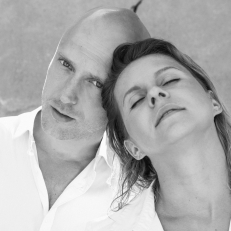
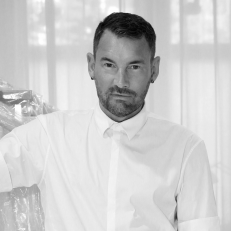
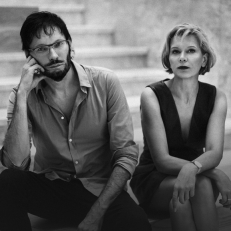
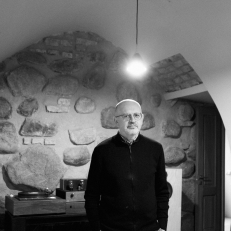
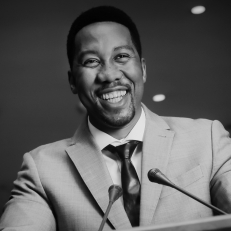


Add a comment